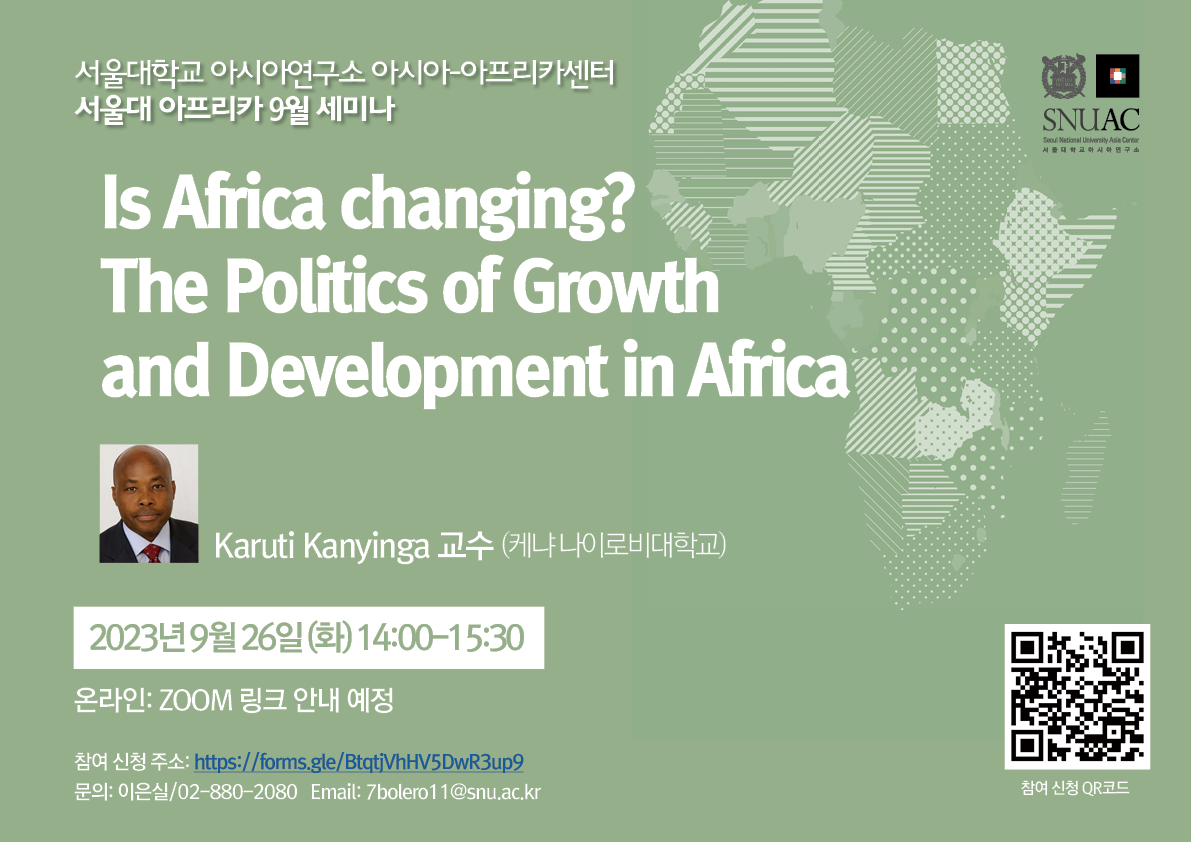Is Africa Changing? The Politics of Growth and Development in Africa
- Date: September 26th, Tuesday, 2023, 14:00 – 15:30
- Online via Zoom [in English]
Speaker: Karuti Kangyinga (Research Professor and Director of Research, Institute for Development Studies (IDS) & Associate Dean, Research and Post-Graduate Studies, Faculty of Arts and Social Sciences, University of Nairobi)
RSVP: https://forms.gle/
Seoul National University Asia-Africa Center (headed by Director Kim Tae-kyun), invited Professor Karuti Kanyinga from the Institute for Development Studies at the University of Nairobi in Kenya to conduct an African seminar in September 2023. Professor Karuti Kanyinga currently serves as the Director of the Institute for Development Studies at the University of Nairobi and has previously worked as a consultant for the World Bank and the United Nations Office on Drugs and Crime (UNODC).
The theme of the September African seminar was “Is Africa changing? The Politics of Growth and Development in Africa.” The lecture began with a question about why some countries succeed in lifting their citizens out of poverty while others stagnate and fail to eradicate poverty. Professor Karuti Kanyinga emphasized Africa as a prime example and discussed various factors contributing to growth, including political commitment, delivery of public goods, and coordination in implementation of policies. He pointed out that Africa’s growth exhibits a “stop-go” pattern, characterized by rapid increases, declines, and recoveries, and identified this irregular growth pattern as one of the hindrances to Africa’s development.
Furthermore, Professor Karuti Kanyinga used statistics from Afrobarometer, a pan-African research network measuring public attitudes toward economic, political, and social issues in Africa, to provide a detailed explanation of Africa’s irregular growth patterns. Data on electricity, piped water, healthcare, and education were presented, and Professor Karuti Kanyinga highlighted the alignment of citizens’ perceptions of growth and development with results from various data sources. Comparative analysis of the statistics revealed that while there is diversity in each country’s development experiences, dissatisfaction among citizens regarding the delivery of development is a common trend across most nations.
Finally, Professor Karuti Kanyinga explained the causes of such dissatisfaction through the historical evolution of state-society relations and intermittent and irregular political commitment observed since the 1990s. The seminar concluded with a 40-minute question and answer session.





